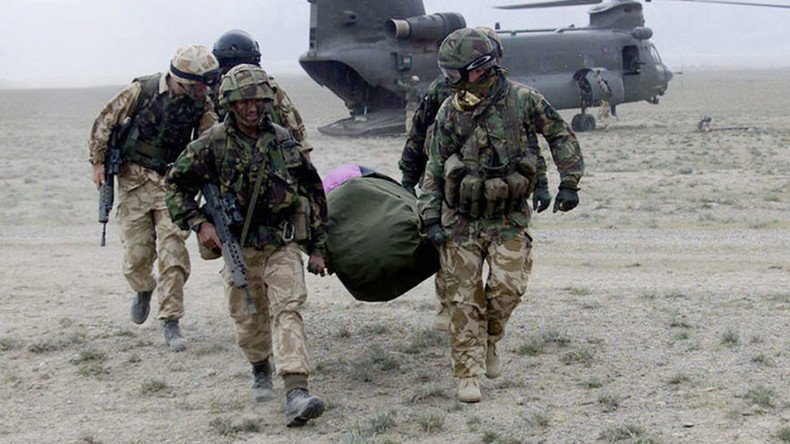Afghan interpreter’s suicide highlights ‘mean & churlish’ UK asylum policy

Afghan interpreters who assisted British forces in their country continue to be denied asylum despite Taliban death threats. A retired field marshal is the latest public figure to condemn the practice after an interpreter, fearing deportation, committed suicide.
Former army, navy and air force chiefs, including ex-field marshal Charles Guthrie, and former defense secretary and ex-Royal Marine Paddy Ashdown, say the government’s refusal to offer sanctuary to its Afghan interpreters, as it did for its Iraqi charges, brings shame on the nation.
Guthrie told the Daily Mail the refusal “is shaming for us.” He said the government is being “incredibly mean and churlish” towards the people who risked their lives to support the British military.
“One has to draw the conclusions that the people who are prepared to make this decision have no idea what a battlefield is like. These men who risked a very great deal to support us deserve our help,” the former head of the British Army said.
Former Tory defense minister Liam Fox said the UK “should be willing to give sanctuary to those people, while former navy chief Lord West said “this is a small number of people and we have a debt of honor to them.”
Their comments come after the death of 29-year-old former interpreter Nangyalai Dawoodzai, who committed suicide after hearing he may be deported from the UK back to Italy and from there potentially back to Afghanistan.
A number of interpreters have been pursued and even killed by the Taliban, which views them as collaborators in the British “occupation” of Afghanistan.
Ex-Royal Air Force commander Sir Michael Graydon said the suicide shows the policy must be rethought to reflect the desperation of the former translators’ situation.
Dawoodzai had served with British forces over the course of three years and had himself been threatened by the insurgent group.
He was arrested at his hostel in Birmingham after his fingerprints were matched with those taken in Italy. He was released after 18 days in a detention center but later found dead.
Another interpreter told the Telegraph that Dawoodzai “said his life was at risk and no one cared ... he believed that Britain would help him because he had helped them. Now he has killed himself – it is so desperate.”
While Iraqi interpreters were granted asylum, the British government brought in restrictive rules on Afghan cases based on when they worked with UK forces. They were offered the chance to relocate to Britain if they were still serving British forces in Helmand province in December 2012 and were employed for more than 12 months.
Former Lib Dem leader and soldier Paddy Ashdown said the failure to offer asylum could have real military consequences.
“Who in the future will ever offer to be an interpreter to help British soldiers do their job when we treat those who have served our troops so scandalously?” he asked.
Despite a wave of bombings by a resurgent Taliban, the Home Office says the Afghan capital of Kabul is safe.
A spokesman told the Mail all asylum cases are considered on their individual merits.












